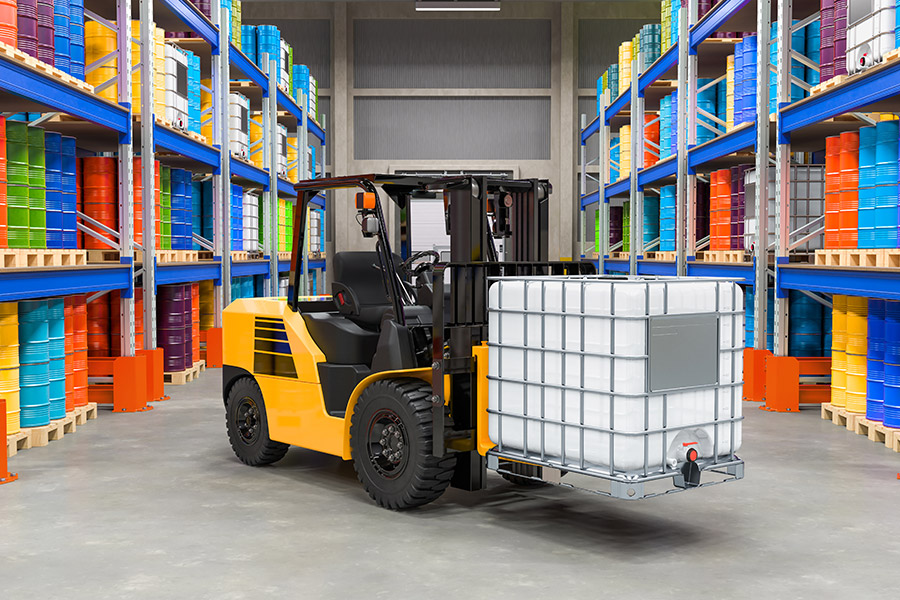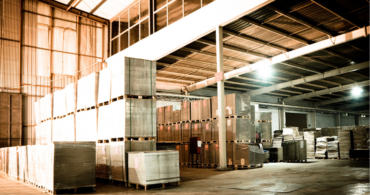When it comes to packaging, most consumers only see fancy retail-friendly boxes on store shelves and never give a second thought to bulk packaging. While they may not be as showy, bulk packages are the champion of the supply chain. Let’s delve into the bulk packaging definition and examine this bulk shipment hero.
The main focuses of the supply chain are speed and efficiency. The goal is to get products to consumers as quickly and inexpensively as possible. When most people think about the supply chain, they picture goods moving from the manufacturer to the consumer. However, an equally important segment of the chain involves raw materials journeying to the manufacturer. During this voyage, we first see the use of bulk packages.
What does bulk packaging mean?
The bulk package definition is a large container used to store or transport raw ingredients or finished goods along the supply chain. The exterior of most bulk packages is generic and bland because they are not intended as a marketing item.
Most manufacturers who transport large quantities utilize bulk packing. However, the bulk shipments that head to a manufacturer tend to be quite different from those that leave it. When a bulk container travels to a manufacturer, it tends to be heavily regulated, especially when it contains hazardous materials. To be considered a bulk-package, the container needs to hold more than:
- 119 gallons (450 liters) of liquid.
- 882 pounds (400 kg) of solids.
- A volume that exceeds 1,000 pounds of gasses.
Once the product is manufactured, bulk packages are much less regulated (as long as the shipment does not contain hazardous materials). Bulk packaging helps keep the finished product safe until batches are ready to be processed or hold unpackaged products. This bulk shipment can weigh anywhere from 50 pounds to a couple hundred and is typically sent to distribution centers before heading to retail outlets and wholesale distributors.
What is bulk packaging?
A wide variety of industries utilize bulk packages. The specific bulk container used depends on the sector’s needs and the shipped products. For example, in the food and beverage industry, a dry flowable product like flour has different packing requirements than a liquid ingredient like cream. In addition, to comply with regulations from various government agencies, such as the EPA and FDA, the bulk packaging of certain consumable items needs to meet specific requirements.
Examples of bulk packaging include:
- Wooden barrels, cases and crates.
- Metal and plastic drums.
- Plastic and burlap sacks.
- Bales.
- Fiberboard boxes and cartons.
- Cardboard packaging.
Another popular bulk-package is known as an intermediate bulk container (IBC). An IBC, also called a tote, is a pallet-mounted, industrial-grade, reusable container used to store and transport liquids and powders, such as chemicals, solvents, pharmaceuticals, grains, food ingredients and sand. IBCs are very warehouse-friendly because they are pallet-mounted and easy to transport by forklift.
There are three categories of IBCs: rigid, folding and flexible. Rigid IBCs have a strong exterior metal cage and an inner container typically made of plastic, aluminum or galvanized iron. Most rigid IBCs are square and have a tap or valve at the base to easily transfer the contents. Folding IBCs are made of heavy-duty plastic and do not have an outer cage. The plastic sides fold inward when the unit is empty, creating a much smaller return shipment and storage package. Flexible IBCs, also known as bulk bags, are made from durable materials like woven plastic. These are used for flowable solid products, such as fertilizer or sand.
Example of bulk packaging in action
Let’s follow a bulk shipment as it journeys through the supply chain. Our bulk packaging contains a powder headed for a manufacturer in the cosmetics and personal care industry. Many flowable solid and liquid components are used in the manufacture of creams, lotions, shampoo, soap (bar and liquid), make-up and additional products in the cosmetics and personal care industry.
Bulk packaging helps ensure that our power ingredient remains effective as it moves across the country and is placed in bulk warehouse storage. Additionally, to protect the end consumer, our bulk-package must meet strict FDA guidelines that help avoid contamination and extends its shelf life.
Other industries that frequently employ bulk packages include:
- Food and beverage.
- Agriculture.
- Industrial goods.
- Pharmaceutical.
- Consumer electronics.
- Construction.
- Household appliances.
- Health care.
- Mining.
- Automotive.
Every industry has specialized challenges that its bulk packing must overcome. For instance, there are strict standards regarding pharmaceutical products and how they can be stored and transported. Another example is the food and beverage industry, which needs assurances that shipped products remain fresh and contamination-free.
Perhaps the best answer to “what is bulk packaging?” is “if you own any manufactured or processed items, you’re glad it exists.” Also, if you are a warehouse manager or own any forklifts, then you’re glad we exist because Texas Motive Solutions is your forklift battery expert. Please call us at (888) 316-2459 or fill out a form to learn about our services and discover everything we can do for you.


